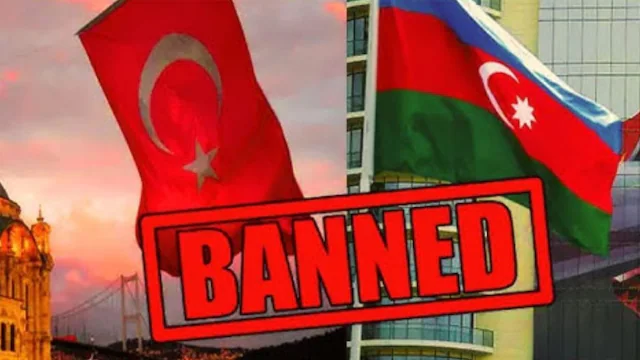India’s trade ties with Turkey, Azerbaijan strain as both back Pakistan, oppose anti-terror strikes.

India’s diplomatic and economic ties with Turkey and Azerbaijan are facing turbulence following their overt support for Pakistan and condemnation of India’s counter-terror operations under Operation Sindoor. The military operation, launched on May 7, targeted nine terror infrastructure sites in Pakistan and Pakistan-occupied Kashmir (PoK) in retaliation for the April 22 terror attack in Kashmir’s Pahalgam.
The fallout from these developments has extended beyond diplomacy, spilling into trade and tourism. Public sentiment in India has turned sharply against Turkish and Azerbaijani products, with traders initiating boycotts of Turkish goods such as apples and marble. Online travel platforms EaseMyTrip and Ixigo have issued advisories discouraging travel to both countries, indicating a growing consumer-led pushback.
India’s Ministry of Commerce is reportedly reviewing bilateral trade dynamics with Ankara and Baku. Officials have confirmed that although trade volumes are relatively modest in the context of India’s total global trade, symbolic action and alignment with national sentiment are being considered.
During the conflict, Pakistan deployed Turkish drones in its failed attempt to strike Indian military infrastructure—further souring Delhi’s perception of Ankara’s role in regional security.
India’s exports to Turkey totalled $5.2 billion during April–February of FY 2024–25, down from $6.65 billion in FY 2023–24. Imports from Turkey were valued at $2.84 billion, marking a trade surplus for India. Major exports include mineral fuels and oils, pharmaceuticals, electrical equipment, and cotton. Imports include high-demand items like marble, fresh apples (worth $10 million), gold, cement, and mineral oil ($1.81 billion in FY 2023–24).
With Azerbaijan, trade volumes are much smaller. India exported goods worth $86.07 million and imported just $1.93 million during the same period. India’s key exports include tobacco ($28.67 million), tea, cereals, and rubber-based products, while imports include leather, organic chemicals, and essential oils.
Beyond trade, people-to-people relations are at risk. Turkey hosts approximately 3,000 Indian nationals—including 200 students—while Azerbaijan is home to around 1,500 Indians. Rising diplomatic tensions could impact these communities and future collaboration in sectors like education, tourism, and business.
India is now recalibrating its approach in the wake of this geopolitical rift. Analysts suggest the government may explore reducing trade reliance on adversarial partners, strengthening alliances with neutral or supportive nations, and leveraging domestic capabilities in sectors like marble, electronics, and agri-imports.
In the long term, Turkey and Azerbaijan’s alignment with Pakistan may lead to reduced bilateral engagements, as India positions itself more assertively on matters of national security and economic sovereignty.











